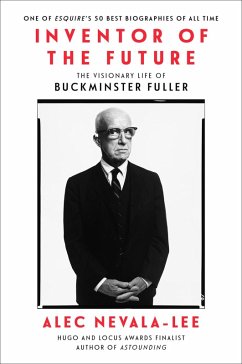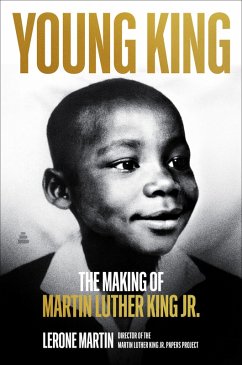
Bluff City (eBook, ePUB)
The Secret Life of Photographer Ernest Withers

PAYBACK Punkte
5 °P sammeln!
The little-known story of an iconic photographer, whose work capturedand influenceda critical moment in American history.Ernest Withers took some of the most legendary images of the 1950s and '60s: Martin Luther King, Jr., riding a newly integrated bus in Montgomery, Alabama; Emmett Till's uncle pointing an accusatory finger across the courtroom at his nephew's killer; scores of African-American protestors carrying a forest of signs reading i am a man. But at the same time, Withers was working as an FBI informant. In this gripping narrative history, Preston Lauterbach examines the complicated ...
The little-known story of an iconic photographer, whose work capturedand influenceda critical moment in American history.
Ernest Withers took some of the most legendary images of the 1950s and '60s: Martin Luther King, Jr., riding a newly integrated bus in Montgomery, Alabama; Emmett Till's uncle pointing an accusatory finger across the courtroom at his nephew's killer; scores of African-American protestors carrying a forest of signs reading i am a man. But at the same time, Withers was working as an FBI informant. In this gripping narrative history, Preston Lauterbach examines the complicated political and economic forces that informed Withers's seeming betrayal of the people he photographed, and does a masterful job of telling the story of civil rights in Memphis in the 1960s (Ed Ward, Financial Times), including the events surrounding Dr. King's tumultuous final march in Memphis.
Ernest Withers took some of the most legendary images of the 1950s and '60s: Martin Luther King, Jr., riding a newly integrated bus in Montgomery, Alabama; Emmett Till's uncle pointing an accusatory finger across the courtroom at his nephew's killer; scores of African-American protestors carrying a forest of signs reading i am a man. But at the same time, Withers was working as an FBI informant. In this gripping narrative history, Preston Lauterbach examines the complicated political and economic forces that informed Withers's seeming betrayal of the people he photographed, and does a masterful job of telling the story of civil rights in Memphis in the 1960s (Ed Ward, Financial Times), including the events surrounding Dr. King's tumultuous final march in Memphis.
Dieser Download kann aus rechtlichen Gründen nur mit Rechnungsadresse in A, D ausgeliefert werden.













